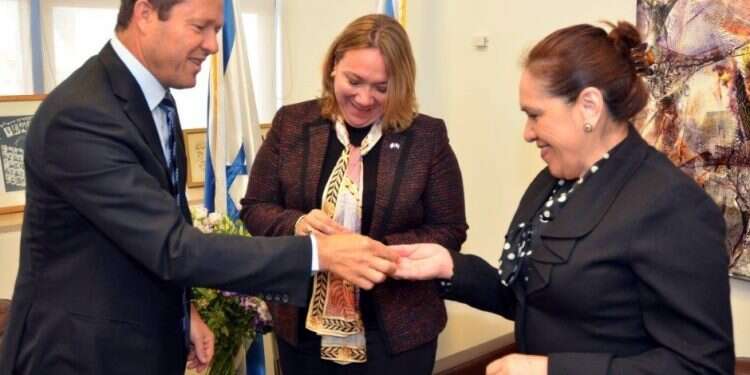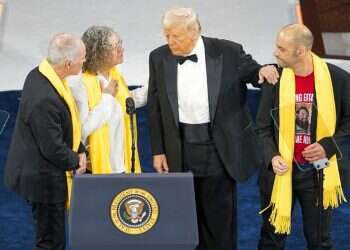Jerusalem Mayor Nir Barkat on Wednesday met with Guatemalan Ambassador to Israel Sara Solís and the director general of its foreign ministry, Maria Luisa Ramirez, to ensure the Central American country's embassy move to Jerusalem goes forward smoothly.
U.S. President Donald Trump declared he would move the U.S. Embassy from Tel Aviv to Jerusalem last December, prompting Guatemala to follow suit.
Guatemala is expected to complete the move on May 16, two days after the U.S. Embassy in Jerusalem is slated to open.
Guatemalan President Jimmy Morales announced his country's intention to mirror the U.S. decision early last month in Washington at the American Israel Public Affairs Committee's annual policy conference.
Barkat shared the meeting with the two diplomats in a Facebook post, congratulating "Guatemalan President Jimmy Morales and Guatemala's government for the courageous decision to move the embassy to Jerusalem.
"I promised them [Solís and Ramirez] we would help however we can to transfer the embassy quickly and smoothly to the capital of Israel. I call upon other nations to follow the U.S. and Guatemala and move their embassies to Jerusalem!"
Guatemala, one of the first countries to maintain diplomatic ties with Israel after its inception in 1948, was the first to establish an embassy in Jerusalem in 1959. By 1980, Guatemala had been joined by a dozen other countries in maintaining an embassy in Jerusalem. Israel's 1980 proclamation that Jerusalem is its "indivisible and eternal capital" led to a United Nations Security Council resolution calling on countries to move their embassies to Tel Aviv, prompting the relocation.
Morales' predecessor from 1993 to 1996, the late Ramiro de León Carpio, was forced to rescind a decision to move Guatemala's embassy back to Jerusalem due to pressure from Arab and Islamic states. These countries import from Guatemala large quantities of cardamom, a spice commonly added to coffee in Middle Eastern cuisine, and the loss of the market was considered too costly.




